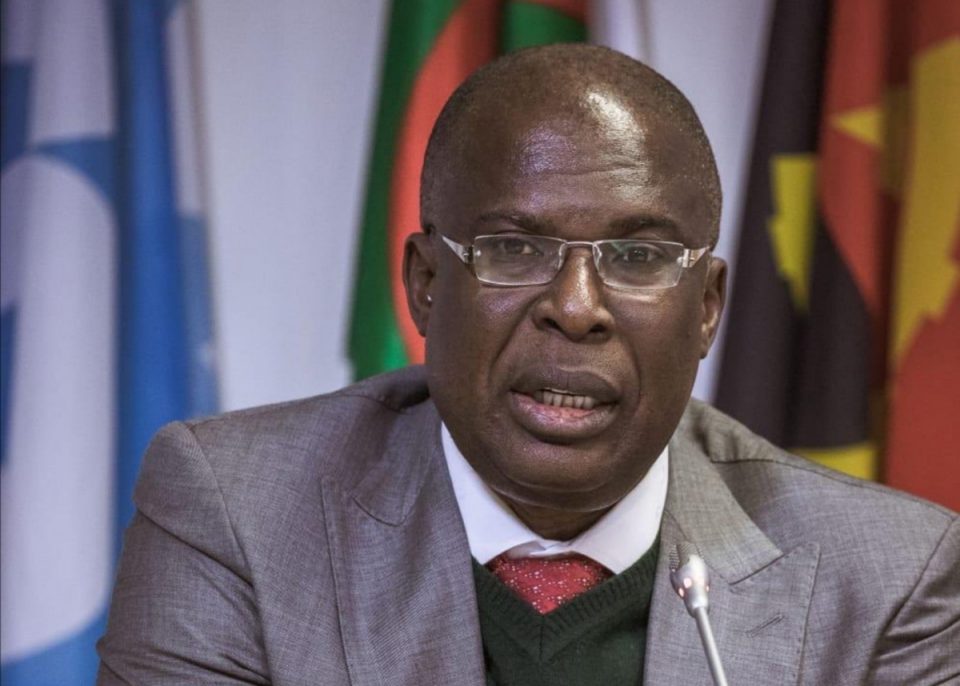The Federal Government says the deregulation of the downstream oil sector is aimed at allowing market forces to determine the prices of petroleum products.
“It has become expedient for the Ministry of Petroleum to explain misconceptions around the issue of petroleum products deregulation’’, Minister of State for Petroleum Resources Timipre Sylva notes.
According to him, it is unrealistic to continue to subsidise petrol as it has no economic value.
“More so, when the subsidy was benefiting in large part the rich rather than the poor and ordinary Nigerians.
“Deregulation means that the government will no longer continue to be the main supplier of petroleum products, but will encourage private sector to take over the role of supplying the products,’’ he explains.
However, the development has generated mixed reactions, especially from the labour that suspects the policy might be an attempt to impoverish Nigerians who are faced with the challenges of COVID-19 pandemic.
“We are surprised that at a time other countries across the world are giving palliatives to their citizens to cushion the effect of COVID-19, Nigerians are asked to pay more for petrol and electricity,’’ Nigerian Labour Congress President Ayuba Wabba, alleges.
Observers note that Nigeria is the 13th largest crude oil producer in the world with an average daily crude oil output of about two million barrels per day.
According to them, it is expected that with such output, the downstream oil sector will be full of significant investments and activities that is not the case.
They express concern that the sector is faced with numerous challenges such as inappropriate product pricing, bridging product supply, insecurity, irregular gas supply, pipeline vandalism, inadequate pipeline infrastructure an non-functional/under functioning refineries, among others.
They have, on many occasions, solicit a deregulated downstream oil sector to enable the sector attract the much-needed investments that can turn around economy.
But over the years, various administrations have adopted measures to tackle the challenges of the sector to ensure that all Nigerians benefit from it.
One of the measures is the the introduction of subsidy for petroleum products, especially for petrol, which experts argue has caused more harm to the economy.
With this sentiment, Sylva announced a full deregulation of the downstream sector in March to play active role in the economic development in the country.
He stated that government would continue to monitor developments in the global market to determine the petrol pump price and would ensure that marketers did not exploit Nigerians.
This was applauded by operators in the sector who advised the government to support the deregulation policy with legal and constitutional backing.
Mr Bank-Anthony Okoroafor, Former Chairman of Petroleum Technology Association of Nigeria (PETAN), commends this development.
According to him, the government needs to sign the Petroleum Industry Bill (PIB) into law to get the desired development in the oil and gas sector.
He observes that the problems around the deregulation of the downstream oil sector could be handled if there was a policy on ground directing what the sector was doing.
“Full and proper deregulation is good. We have always advocated that the forces of demand and supply dictate happenings in the market.
“It took a long time for government to come to this decision. It requires leadership and courage. We should all support this move.
“We should move further and privatise the refineries so that they can run more efficiently and help in addressing shortages in product supply and also reducing the pressure on our foreign exchange,’’ he observes.
Also, Mr Joe Nwakwe, the immediate past president of the Society of Petroleum Engineers, says that although the time of announcing the deregulation might look unfriendly because of the economic hardship caused by the impact of the COVID-19 pandemic in country, the government needs to be encouraged in its efforts to ensure full deregulation of the downstream oil sector.
Sharing similar sentiments, Prof. Wunmi Iledare, former president of Nigerian Association of Energy Economics, believes that Nigeria may save more than five billion dollars annually if the country deregulates its downstream oil sector.
He observes that the current price of petrol is still far from what it ought to be and that deregulation and removal of subsidy are essential for the growth of the sector.
In the same vein, the Group Managing Director of the Nigerian National Petroleum Corporation (NNPC), Malam Mele Kyari, notes that the sector stands to gain more with the full deregulation.
He says further that the Federal Government removed subsidy on petrol because of the fraud perpetrated by some fraudulent elements in the sector.
He also observes that more than N10 trillion was spent on fuel subsidy between 2006 and 2020 without significant impact on the Nigerian masses.
He alleges that the beneficiaries of the fuel subsidy regime are the marketers who smuggle the subsidised product to neighbouring countries.
“These marketers make more profits with fake documents to collect subsidy for fuel they never imported,’’ he alleges.
Kyari, nonetheless, says that there are plans by the government to inject more than N2.7 trillion into the economy to stimulate production, stabilise the exchange rate and cushion the inflationary effect of the pump price increase.
Commending the Federal Government for the initiative, the Major Oil Marketers Association of Nigeria, says the Federal Government has taken the courage to tackle the challenges in the downstream oil sector.
The president of the association, Mr Tunji Oyebanji, says the Federal Government displays utmost pragmatism by finding solution to the age-long challenges in the downstream oil sector.
However, some concerned citizens have pledge support for the full deregulation of the sector but call on government to put palliatives in place to help reduce the burden occasioned by the deregulation.
They plead with the government to ensure that saving from removal of subsidy will be channelled to projects that will serve the masses.
According to them, a full deregulation with effective policies will provide the required development in the sector and bring the desired development in the country.




